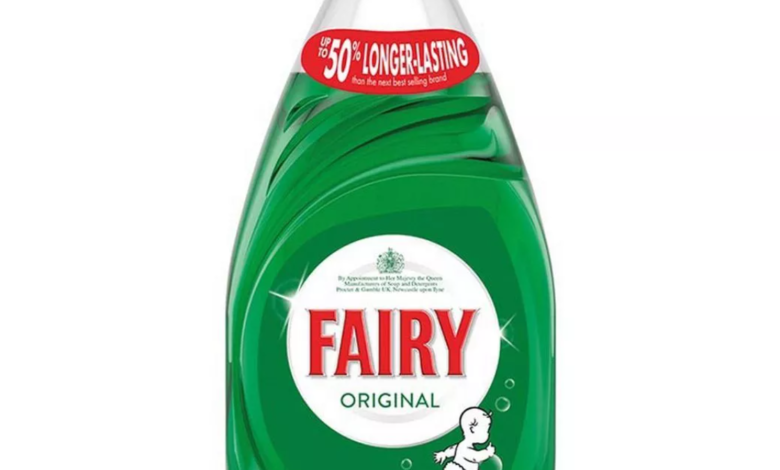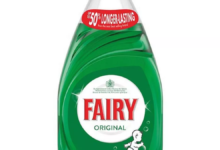Fairy Washing Up Liquid Warning: What You Need to Know

Learn the truth about the fairy washing up liquid warning, including safety tips, expert advice, FAQs, and everyday household best practices. Stay informed and keep your home safe.
Understanding the Fairy Washing Up Liquid Warning
When people first hear about a fairy washing up liquid warning, it can sound a little alarming. After all, this is one of the most popular dishwashing products in many homes. Parents, students, and families have trusted it for decades. But like every household chemical, even something that seems harmless deserves a closer look.
The fairy washing up liquid warning isn’t about sparking fear. It’s about awareness. Most of us use cleaning products daily without thinking twice about the ingredients or the proper usage. By knowing what’s in your bottle, how to use it correctly, and what the warnings really mean, you can avoid unnecessary risks while still enjoying sparkling clean dishes.
Why Warnings Exist on Everyday Products
It may surprise you that even the mildest household products carry small print labels. The fairy washing up liquid warning is no different. These labels aren’t there to scare consumers but to provide guidance. Manufacturers are required by law to highlight potential hazards, no matter how unlikely they are to occur under normal use.
Think of it as a seatbelt in a car. Most of the time, you won’t need it. But in rare situations, it can make all the difference. The same principle applies to the fairy washing up liquid warning. Whether it’s about avoiding eye irritation or keeping the liquid away from children, the advice is designed to prevent accidents before they happen.
Common Misunderstandings About the Fairy Washing Up Liquid Warning
One of the biggest myths is that the fairy washing up liquid warning means the product is dangerous to handle. That’s not true. Used properly, it’s perfectly safe. What the warning emphasizes is responsible handling—such as not ingesting it, not splashing it into your eyes, and storing it safely.
Another misunderstanding is that natural or eco-friendly alternatives don’t carry risks. In reality, almost every cleaning product, whether commercial or homemade, requires careful handling. Vinegar, baking soda, and essential oils may sound harmless, but they can cause irritation or harm when misused. The fairy washing up liquid warning is simply part of that wider reality.
Safety Guidelines You Should Always Follow
The fairy washing up liquid warning often focuses on three core aspects: storage, handling, and disposal. Let’s break them down.
- Storage: Always keep bottles out of reach of children and pets. Curious hands and paws can easily cause spills or accidental ingestion.
- Handling: Avoid touching your eyes or mouth when using it. Wash your hands after heavy dishwashing sessions, especially if you have sensitive skin.
- Disposal: Don’t pour large amounts of unused liquid down the drain unnecessarily. Follow local guidelines to reduce environmental impact.
By following these small but essential rules, the fairy washing up liquid warning becomes less of a concern and more of a practical reminder.
Expert Insights on the Fairy Washing Up Liquid Warning
Experts in household safety often stress that warnings are not red flags but tools. A leading consumer safety consultant once remarked:
“A fairy washing up liquid warning isn’t about danger. It’s about responsibility. Even water can be harmful in certain circumstances, so every product benefits from proper instructions.”
This perspective helps put things into balance. Instead of avoiding a product because of the fairy washing up liquid warning, consumers can use the knowledge to enjoy safer cleaning routines.
Health and Skin Considerations
One area where the fairy washing up liquid warning often comes into play is skin health. For most people, washing dishes with bare hands is no problem. However, prolonged exposure can cause dryness or mild irritation, especially for those with sensitive skin.
Dermatologists often suggest wearing gloves if you’re prone to eczema or skin flare-ups. The fairy washing up liquid warning reinforces this by reminding users that extended contact isn’t recommended. It’s not a sign of harsh chemicals but an acknowledgment that everyone’s skin reacts differently.
Environmental Aspects of the Fairy Washing Up Liquid Warning

Another important part of the fairy washing up liquid warning concerns the environment. While modern formulations are designed to be biodegradable, any cleaning product can cause issues if poured out in excessive amounts.
Small everyday use is perfectly safe. But if someone disposed of a large quantity directly into natural waterways, it could disturb ecosystems. This is why the fairy washing up liquid warning often highlights proper disposal methods and encourages mindful use.
Comparing Fairy Washing Up Liquid with Alternatives
It’s natural to wonder how fairy washing up liquid compares to other brands in light of warnings. To make things easier, here’s a simple table that compares fairy washing up liquid with other common dishwashing solutions.
| Product | Main Concerns | Warnings Present | General Safety |
|---|---|---|---|
| Fairy Washing Up Liquid | Mild skin dryness, eye irritation | Yes | Safe with normal use |
| Eco-Friendly Liquid | Possible essential oil sensitivity | Yes | Safe, but caution for allergies |
| Homemade Vinegar Mix | Corrosive in high concentration | Yes | Safe in moderation |
| Budget Brands | Higher fragrance chemicals | Yes | Varies by formula |
As you can see, the fairy washing up liquid warning is not unique. Every option comes with its own considerations.
Everyday Tips to Stay Safe Without Worry
Living with the fairy washing up liquid warning doesn’t mean living in fear. In fact, it can make your daily routine smoother if you adopt simple habits.
- Use only the recommended amount—more suds don’t equal cleaner dishes.
- Store the bottle in a cool, dry place away from direct sunlight.
- Keep a habit of rinsing your dishes thoroughly to avoid any residue.
These easy practices help you get the most out of your product while respecting the purpose of the fairy washing up liquid warning.
FAQs About the Fairy Washing Up Liquid Warning
Q: Is fairy washing up liquid toxic if ingested accidentally?
A: While it isn’t designed for consumption, small accidental amounts are unlikely to be severely harmful. Still, it’s best to rinse the mouth, drink water, and seek medical advice.
Q: Can I use fairy washing up liquid to clean fruits or vegetables?
A: No. The fairy washing up liquid warning clearly advises against using it on food items. Stick to clean water or food-safe washes.
Q: Does the fairy washing up liquid warning apply to diluted solutions?
A: Yes. Even diluted, the product is not meant for internal use or contact with sensitive areas like the eyes.
Q: Why does fairy washing up liquid have a warning if it’s safe?
A: The fairy washing up liquid warning exists because all cleaning products must include safety guidance. It ensures proper use rather than signaling high danger.
Q: Can it cause allergic reactions?
A: In rare cases, yes. Those with sensitive skin should patch test or use gloves as a precaution.
Conclusion
The fairy washing up liquid warning is less about danger and more about responsibility. It’s a reminder that even the most trusted household items deserve careful handling. With awareness, safe habits, and a little common sense, you can keep your home sparkling without worry.





